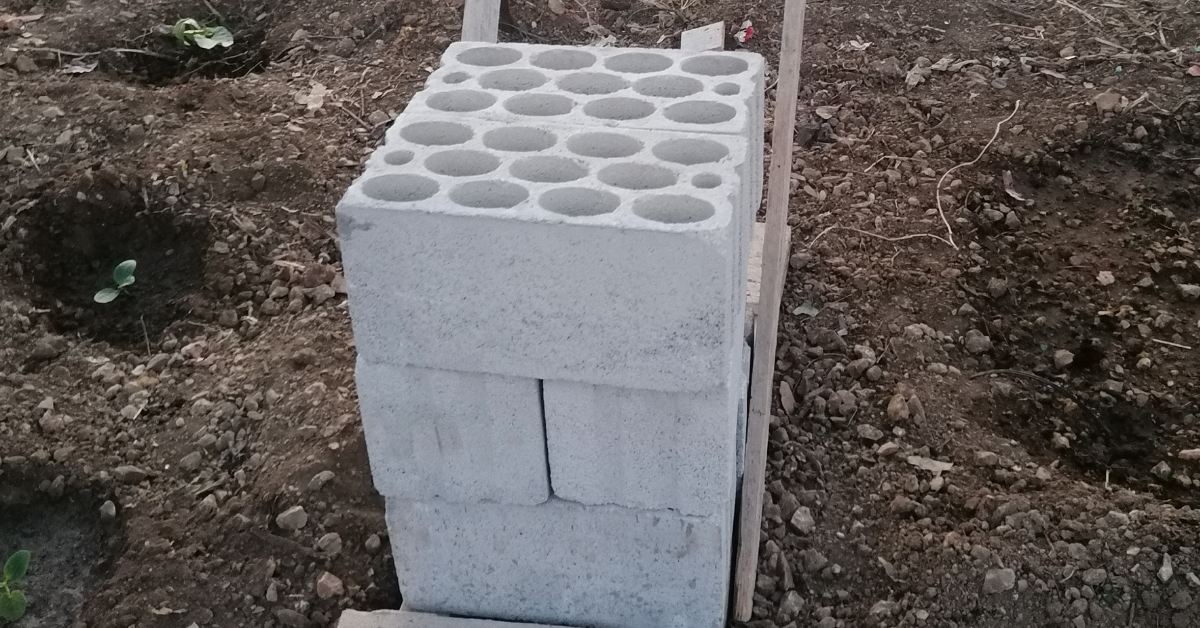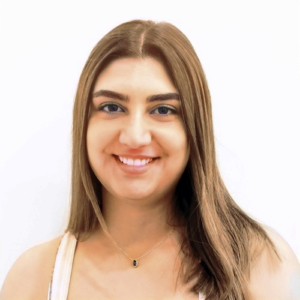What They Do:
Reconcrete is aiming to save the environment by introducing unrecyclable non-biodegradable solid waste materials into new concrete mixtures. To produce eco-friendly concrete hollow blocks for partition walls, they use green glass, plastics, and recycled concrete aggregates to either partially or completely replace conventional raw materials such as sand and gravel.
They believe the shift from typical blocks minimizes the exploitation of natural resources whose extraction generates pollution and damage to the aesthetic image of the mountains. This can also help diminish the pressure on landfills as these solid materials are destined for dumping sites that require large areas of land and are not prepared up to standard.
Moreover, concrete hollow blocks are non-structural elements and require by national and international specifications a low strength with minimal restrictions on their properties which makes it easier to modify their mix proportions and integrate new types of solid wastes in the future.
Reconcrete blocks are customizable, cost-effective, and eco-friendly. They are also of great benefit to contractors, engineers, and clients who can receive a block that is up to standard at a cheaper cost while re-integrating solid waste back into the cycle for another cause.
Startup Experience:
“When we read about the USAID DAWERR Ideathon, we realized that we finally had an opportunity to transform what was no more than research work done by university students, into a strong and competitive product in the market. Working with professionals at Berytech has been of great benefit for all the members of this startup, as we were given high-level guidance in important aspects: Financial modeling of a startup, legal requirements to start a business, and how to do proper market researching to customize the best possible prototype.
We are currently in the second phase of the program, and we can proudly say we have come a long way in our learnings and become more familiar with the market we are entering, the challenges we will face, and what the customers are looking for in a product. The MVP (Minimum Viable Product) we developed is being tested within local and international concrete block requirements.
The key to our success is due to the in-depth research we have done, with the support of our CEO and university professor. Another principal factor in our success is that our team has a diversified background.
We would consider the agreement we made with NGM blocks to be our proudest achievement. Despite the multiple challenges associated with finding a location, with this agreement we can manufacture Reconcrete blocks at the NGM facility and use their machines, concrete mixer, and storage areas at their facility. Accelerating our ability to start production in the coming months and putting all our efforts into practice.
Everything that occurred in Lebanon for the past two years, has altered the course of our work. A few months after the unfortunate Beirut Blast incident, we proposed an initiative to help with upcycling the waste produced by the demolition.
Directors at the Lebanese Association for Research, Innovation, and Development (LARID) NGO showed great interest in our product, and we signed a letter of agreement with LARID to help get rid of the demolition waste caused by the Beirut Blast.
The economic crisis, the inflation in transportation fees, as well as the COVID-19 pandemic, have been major challenges for us to overcome, we struggled to reach our partners and customers on time due to the restrictions in place, and face to face meetings have been exceedingly difficult to organize, stopping us team members from meeting as much as we would have wanted to.
We overcame these challenges and difficulties by being resilient and determined to achieve the success we aim for. To do so, we communicate daily to divide the work and meet virtually at least two to three times a week to brainstorm and summarize the ideas we have.
Furthermore, we conducted in-depth research on the needs of our customers and the market online. Our operations were not the smoothest, but the results were to our satisfaction and as successful as we would have liked.
Thankfully, the COVID-19 restrictions are being lifted, allowing us to meet with our partners and customers regularly.
By the end of the program, we hope to be fully prepared to operate our new business on our own, achieve the founding framework of our startup, and gain the knowledge and insights of environmental scientists, financial analysts, and business professionals.
We hope to gain the skills required and be ready to launch our business on the market. We are expecting the program to prepare the team to recognize any weaknesses in the business model, how to fix these weaknesses to increase efficiency and achieve the targets being set.
The experts helped us in getting ready for the financial and operational challenges we might face since we have little experience in new startup projects. Throughout this program, we have also been forming connections with experts and stakeholders and have been supported on many levels. This experience not only helped us grow as a startup but also contributed to our personal growth and development.”
About DAWERR
The Diverting Waste by Encouraging Reuse and Recycling Activity (DAWERR) is a five-year activity funded by the United States Agency for International Development (USAID) that aims to improve the social, environmental, and economic well-being of Lebanese citizens by establishing sustainable solid waste recovery and diversion programs in collaboration with municipalities throughout rural areas in Lebanon. Learn more about DAWERR Activity: https://berytech.org/programs/dawerr/










